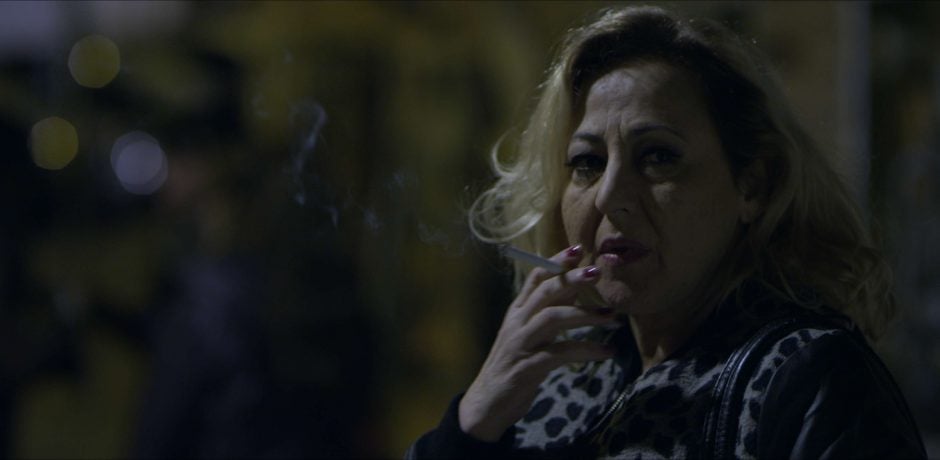
Writer-director Marina Seresesky and producer Álvaro Lavín’s film La Puerta Abierta showed last week at HOME as part of ¡Viva! Spanish and Latin American Festival.
Rosa—the film’s protagonist—is an aging prostitute, living with her mother Antonia, by whom she was born and raised into the business. The neighbouring matchbox flats are populated by a vibrant cast of characters, prostitutes too, and all lipstick, cigarettes and silicone. There is more than a touch of the Almodóvar in this aesthetic, and also in the robust, unflinching and diverse images of womanhood that Seresesky paints. The gaggle of women are crude and hardened by the trade, squabbling on the balconies which form the public space between their flats. Yet their collective experience of marginalisation from society bonds them together with an intensity that feels maternal from the film’s early scenes.
When one of Rosa’s neighbours, known only as ‘The Russian’, commits suicide leaving behind seven-year-old Lyuba, the issue of motherhood begins to arise more explicitly. The transgender Lupita is arguably the most maternal of the bunch, a loveable amalgamation of warmth and vulgarity whose presence feels like home. The orphaned Lyuba, somewhat tragically, seems most capable of the practicalities of mothering, whether cooking omelettes, doing Antonia’s hair, or cleaning up Rosa’s bloody nose and asking, “Who did it? The police? Or a customer?” Meanwhile Rosa, turned bitter by her own mother’s irresponsibility, is adamant that Lyuba had better not stay with her. As the story and characters develop, this is what we’re hooked by: can Rosa shrug off the disappoint of the past to embrace this new opportunity?
The men in the film are few, and the ones that do feature are relatively absent and wholly unlikeable. There’s Lyuba’s foul-mouthed transphobic brother, who we inevitably inwardly pray that Lyuba doesn’t end up having to live with. Aside from the violent and adulterous Paco who we only really meet in passing, we don’t meet any customers the women encounter. Violence at the hands of them is presented as an unavoidable occupational hazard; it certainly comes up in the film, but it’s not dwelt on specifically. This is a group of women for whom men have long since ceased to be anything but a means to an end. Rather than condemning men or masculinity, the film looks at the surrogate, often all-female families that spring up in their absence.
La Puerta Abierta is a memorable and very well-crafted exploration of maternity and womanhood, of opening doors to eachother and to opportunity.
Filed under: Film, TV & Tech
Tagged with: film, film review, HOME, La Puerta Abierta, Spanish film, The Open Door, Viva Spanish and Latin American Film Festival



Comments